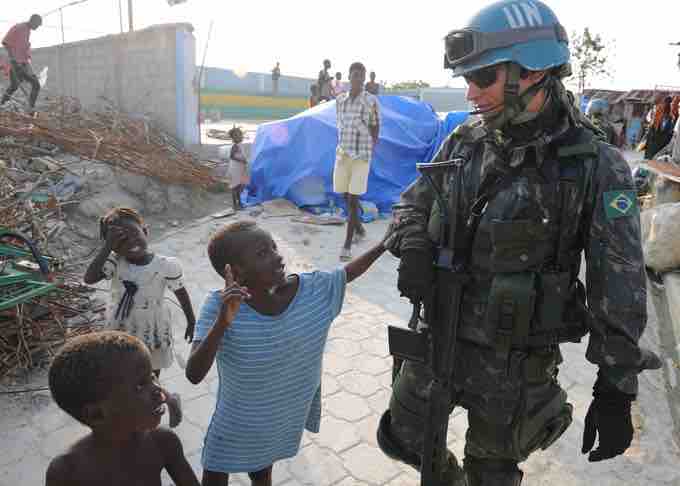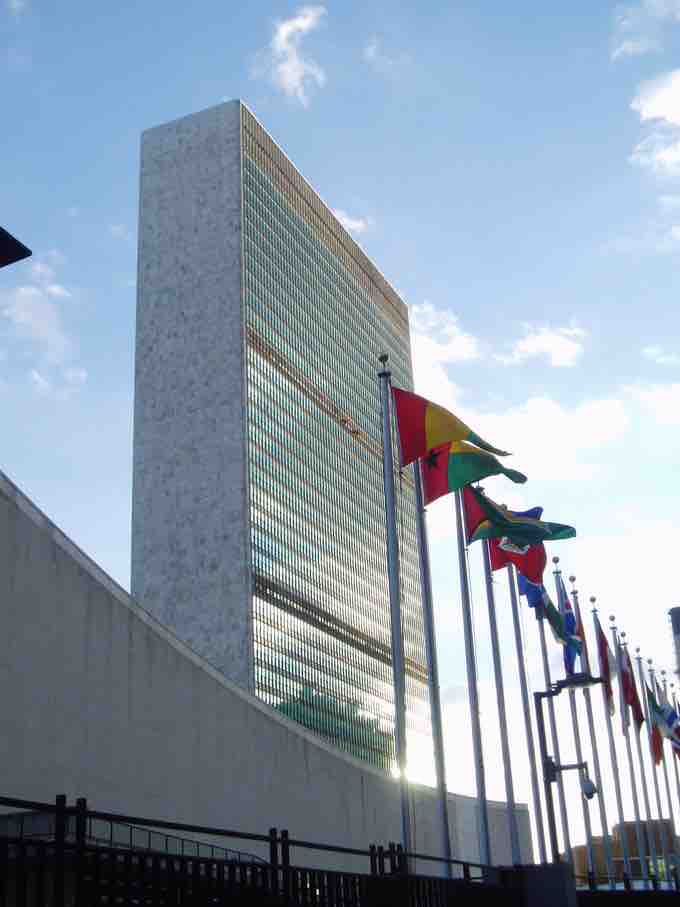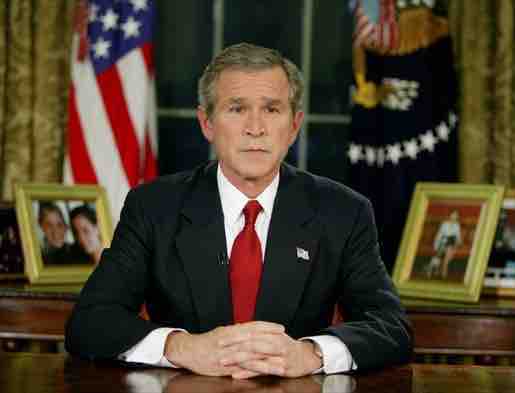What is the United Nations?
The United Nations (UN) is an intergovernmental, international organization consisting of all 193 states in the world, whose stated aims are facilitating cooperation in international law, international security, economic development, social progress, human rights, and the achievement of world peace. The UN was founded in 1945 to stop wars between countries and to provide a platform for dialogue. It contains multiple subsidiary organizations to carry out its missions.
History of the UN
After World War II, most government leaders recognized that humankind could not afford a third world war. The United Nations was established to replace the flawed League of Nations, in order to maintain international peace and promote cooperation in solving international economic, social and humanitarian problems.
In 1945, the UN officially came into existence upon ratification of the United Nations Charter by the five then-permanent members of the Security Council—France, the Republic of China, the Soviet Union, the United Kingdom and the United States—and by a majority of the other 46 signatories.
Organization of the UN
The organization's principle organs are as follows:
- The General Assembly is the main deliberative assembly and is composed of all United Nations member states.
- The Security Council (UNSC) is charged with maintaining peace and security among countries. It is composed of 15 member states, including 5 permanent members--China, France, Russia, the UK, and the US.
- The Economic and Social Council promotes international economic and social progress through cooperation and development.
- The Secretariat, headed by the Secretary-General, provides studies, information and facilities needed by the UN bodies.
- The International Court of Justice is the primary judicial organ of the UN.
Other prominent UN agencies exist to work on particular issues. Some of the most well-known agencies are the International Atomic Energy Agency, the World Bank, the World Health Organization (WHO), the World Food Programme (WFP), and the United Nation's Children's Fund (UNICEF). It is through these agencies that the UN performs most of its humanitarian work.
The UN is financed from assessed and voluntary contributions from member states. The General Assembly approves the regular budget and determines the assessment for each member.
Objectives of the UN
One of the main objectives of the UN is peacekeeping and security . With approval from the Security Council, the UN sends peacekeepers, voluntarily provided by UN member states, to regions where armed conflict has recently ceased. The goal of the peacekeepers is to enforce the terms of peace agreements and to discourage combatants from resuming hostilities.

UN Peacekeepers
A UN peacekeeper carries out operations in Haiti. Peacekeeping and security are primary objectives of the UN, and UN peacekeepers have been deployed around the world.
The UN is a world leader in human rights protection and humanitarian assistance. The Universal Declaration of Human Rights, though not legally binding, was adopted by the General Assembly in 1948 as a common standard of achievement for all. The UN and its agencies are central in upholding and implementing the principles enshrined in the Declaration, from assisting countries transitioning to democracy, to supporting women's rights, to providing humanitarian aid.
Lastly, the UN also focuses on social and economic development through the UN Development Program (UNDP) and other agencies like the WHO and the World Bank.
The United States and the UN
The United States is a charter member of the United Nations and one of five permanent members of the UN Security Council. The most important American contribution to the United Nations system is perhaps the Bretton Woods conference. This conference took place in 1944, and its goal was "to create a new international monetary and trade regime that was stable and predictable." This new system opened world markets, promoted a liberal economy and was implemented through different institutions, such as the World Bank and the International Monetary Fund.
Since 1991 the United States has been the world's dominant military, economic, social and political power (plus it hosts the UN Headquarters itself in New York City ). The United Nations was not designed for such a unipolar world with a single superpower, and conflict between an ascendant U.S. and other UN members has increased.

UN Building in New York
This picture shows the UN Secretariat's headquarters in New York City.
One of such conflicts occurred when the U.S. refused to pay its arrears in order to force UN compliance with U.S. wishes, as well as to cause the UN to reduce the U.S. assessment.
Another conflict between the U.S. and some UN members arose in 2003 over the issue of Iraq. U.S. President Bush maintained that Iraqi President Saddam Hussein possessed weapons of mass destruction (WMDs) in violation of his post-Gulf War obligations. In order to find these WMDs, Bush and a "coalition of the willing" invaded Iraq without explicit UN Security Council approval, causing friction within the multilateral UN .

2003 Invasion of Iraq
President George W. Bush addresses the nation in 2003, announcing the beginning of Operation Iraqi Freedom. The U.S.' s near-unilateral invasion of Iraq caused tension in the multilateral UN.